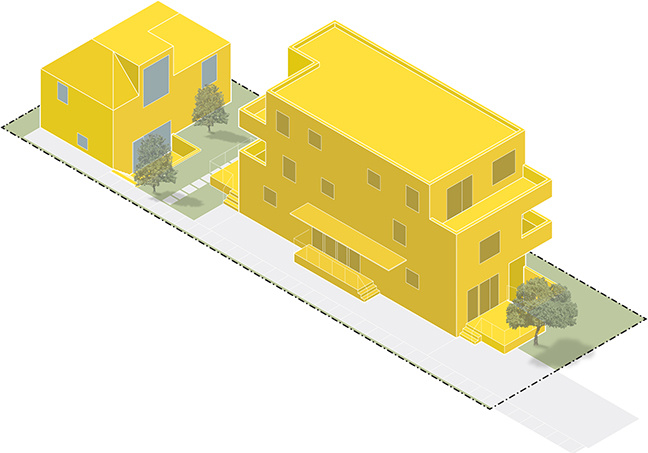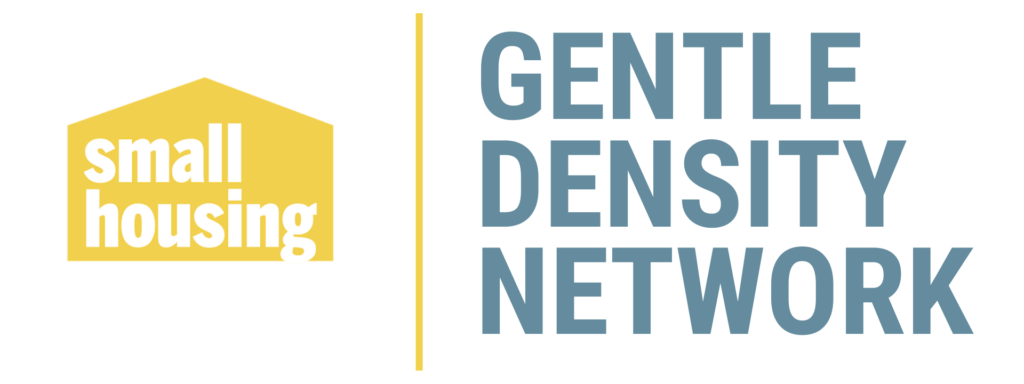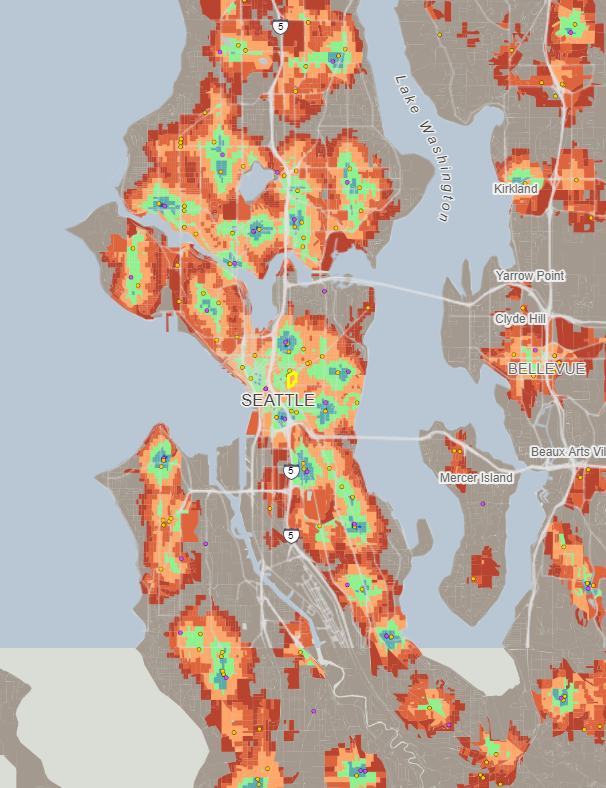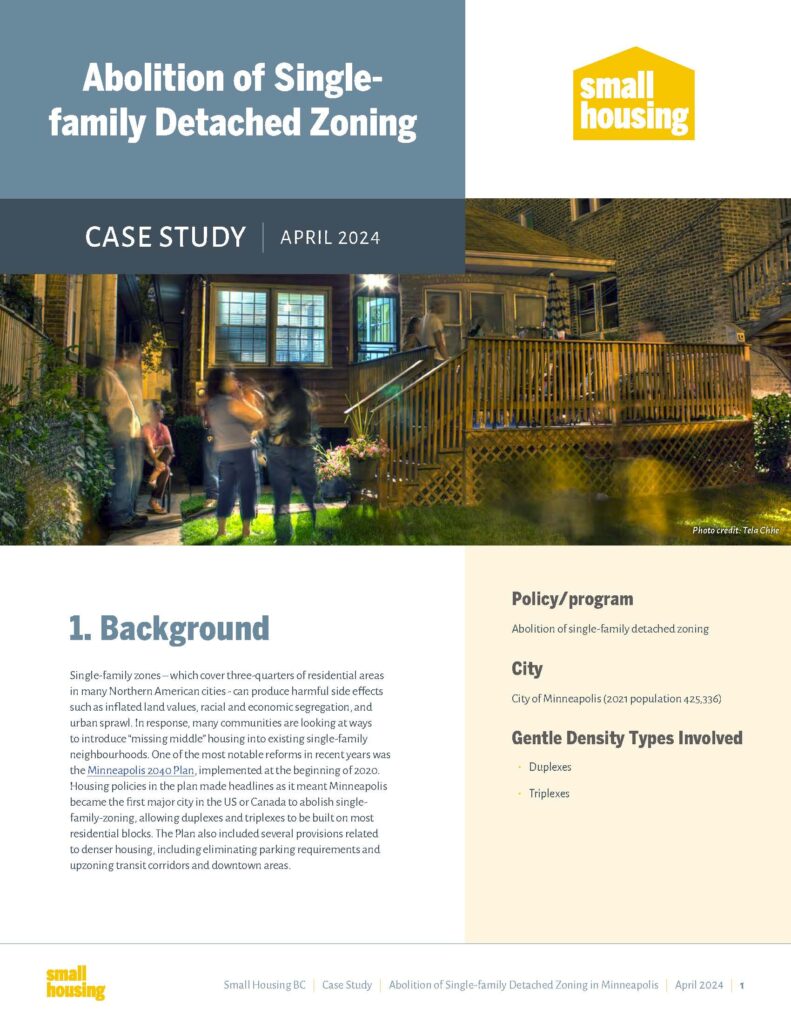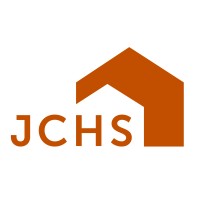
Name: Happy Cities
About: Happy Cities is an urban planning, design, and engagement consulting firm with a mission to create happier, healthier, more inclusive communities. As part of its housing practice, Happy Cities advises municipalities, developers, and housing providers on strategies to support resident wellbeing throughout development and after move-in.
The organization’s Happy Homes research shows how intentional design can reduce social isolation, support age-friendly homes, and boost community resilience in multi-unit buildings, culminating in a toolkit to help housing providers turn wellbeing evidence into action. Happy Cities has applied these design strategies to developments like Our Urban Village Cohousing, an innovative missing middle project that offers a promising solution to Vancouver’s housing and social isolation crises. Along with showcasing the many benefits of gentle density, the project identifies solutions to reducing some of the financial and policy barriers that can impede community-oriented housing models.
For more information, head to their website.
